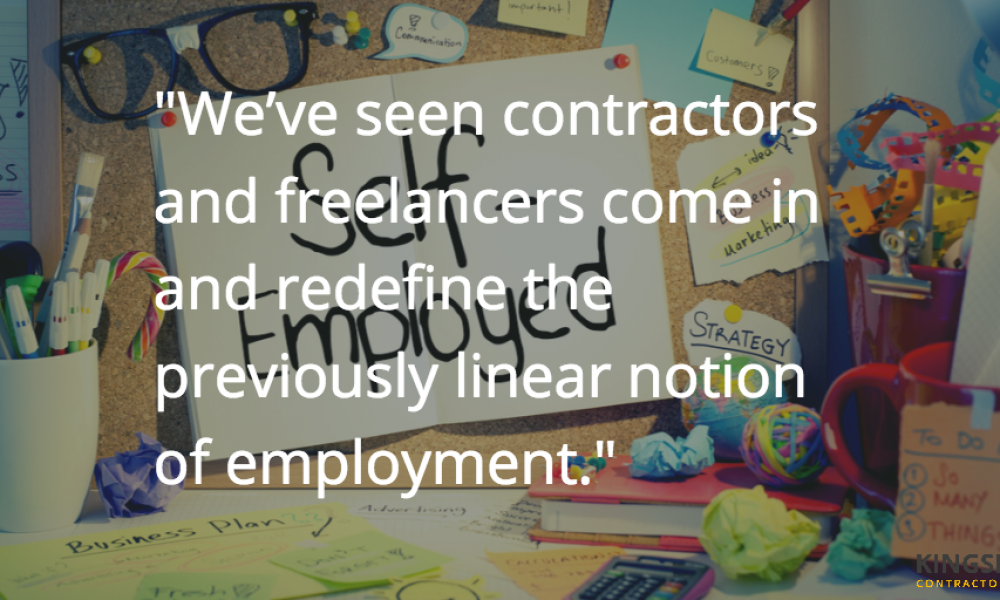Uncertainty in and around the UK economy has been brewing for some time now. Whether it’s the looming prospect of Brexit, the fear of jobs moving abroad, or the rise of automation and AI, the news in recent years hasn’t been particularly positive.
However, one thing is often ignored the growth in self-employment. With the nature of work in a state of flux, we’ve seen contractors and freelancers come in and redefine the previously linear notion of employment.
According to data from the ONS, by May 2017 there were 4.8 million self-employed people in the UK ? 15% of all people in work. But what does the future hold?
PeoplePerHour, an online platform for freelancers and the self-employed to showcase their work and get hired, has predicated remarkable growth by 2020. They suggest that 50% of the UK workface will be self-employed by that time, contributing more than £50 billion to the UK economy.
Whilst an increase of 35% in a little over two years (the study was published in 2017) might seem like a rather cavalier prediction, there are some interesting numbers attached. As company founder Xenios Thrasyvoulou noted: The workforce is shifting and the model of full-time employment is becoming obsolete.
By combining their own statistics with a selection of YouGov data, PeoplePerHour were able to clearly lay out the myriad benefits that come with working for yourself:
- 87% of self-employed people say they would never be a regular employee again
- 35% of self-employed people took two or more holidays outside the UK in the last year, compared to 29% of employees
- Almost half (44%) of self-employed professionals work from home and have no commute, compared to 1 in 10 Brits who have to travel 3 hours a day or more
- Self-employed people got a third more exercise in comparison with a person in ?standard’ employment
So what does all this change mean for the UK’s economic statistics?
The rise in self-employed workers establishing themselves as companies and paying themselves in new ways have fundamentally altered our economic landscape.
Before we take a look at the numbers we need to ask the question, why are people who work for themselves registering as companies?’ The answer is relatively simple. Incorporation is more tax efficient. Self-employed workers pay themselves a small salary and take the rest of their income as a dividend, therefore reducing the overall amount of tax they pay.
Hiring a company rather than individual is also a more attractive proposition for the end client. By doing so they’re able to reduce their national insurance contributions as well as avoiding pension costs.
In 2016, the ONS drastically revised their figure of the total sum paid out in dividends by the self-employed after obtaining tax data and revising their statistics. Rather than the £12.2bn previously thought, the true amount was much higher: £61.7bn.
When it comes to the bigger picture, what does this mean for the UK economy as a whole? Households have more resources than statisticians initially thought, meaning that they are not running down savings as much as previously presumed. That increase in household income comes at the expense of companies, however – The amount that companies are saving has been revised down by the same amount as households incomes increased.
It’s widely acknowledged by the ONS that real wages have stagnated since the financial crisis, but their survey does not cover the self-employed. Whether or not they have enjoyed greater wage growth since 2008 is not yet clear, but it seems certain that their future is a brighter one than today’s average worker.’
Currently an employee and thinking about making the move to self-employment? Kingsbridge have the insurance package you’ll need. For more information take a look at our different contractor insurance packages or get in touch on 01242 808740.
